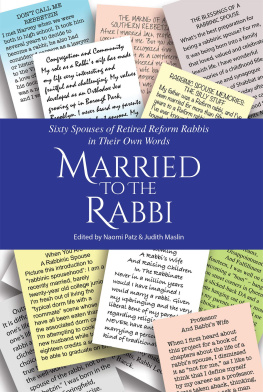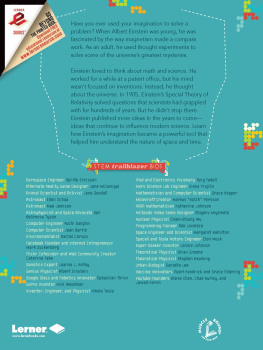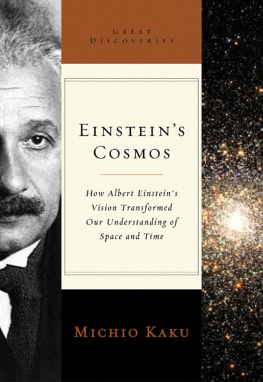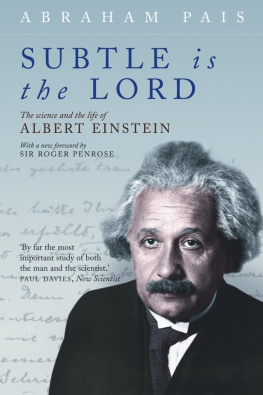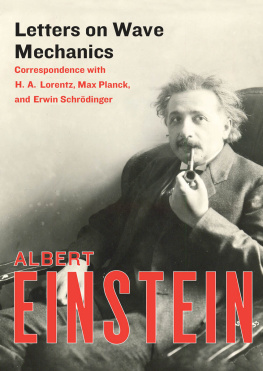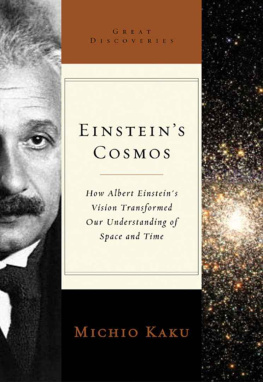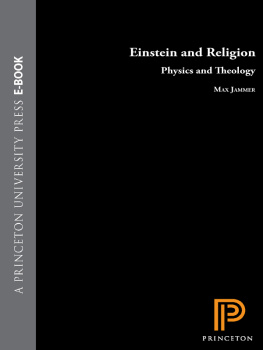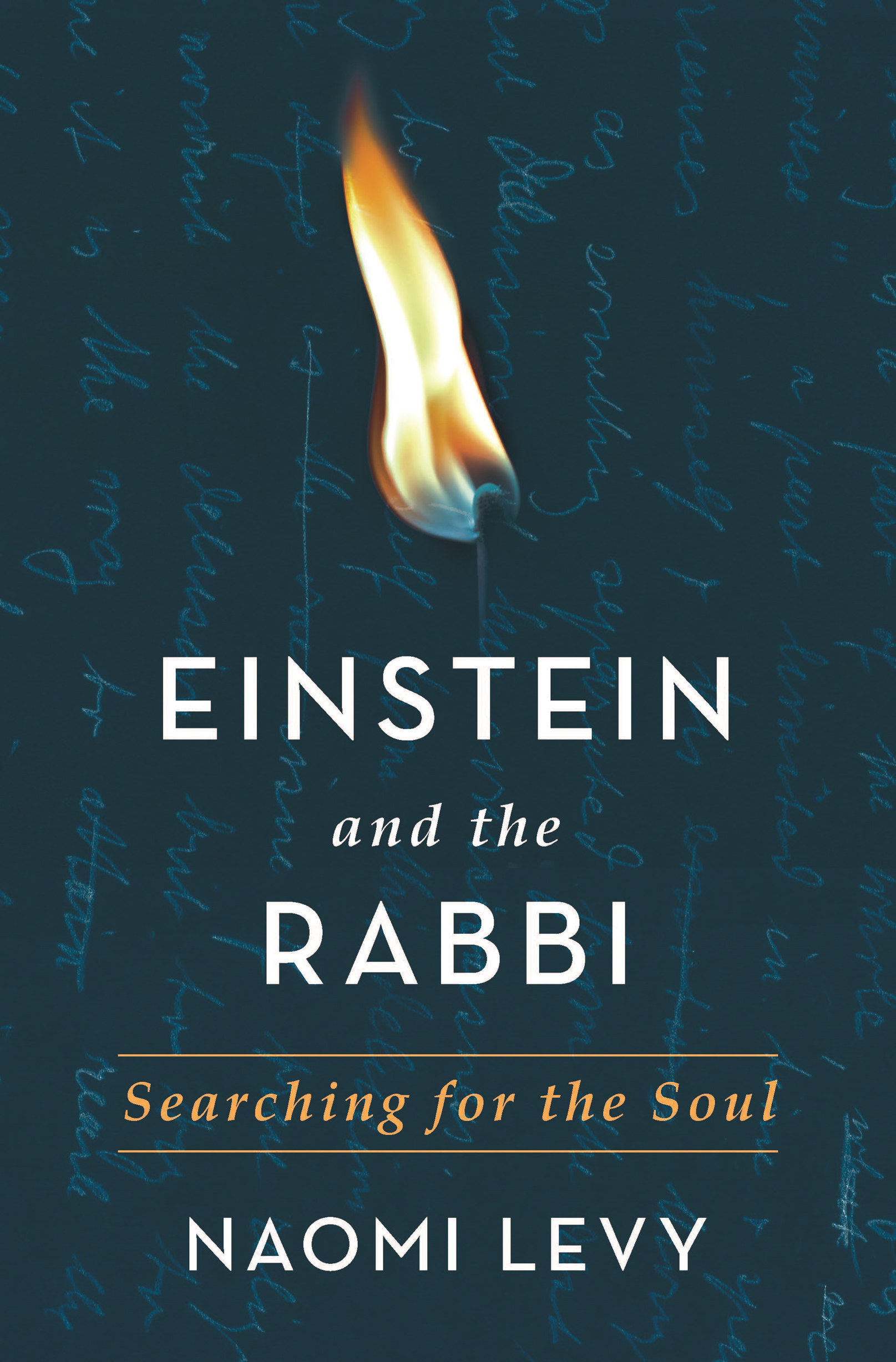Contents
Guide
Pagebreaks of the print version

The author and publisher have provided this e-book to you for your personal use only. You may not make this e-book publicly available in any way. Copyright infringement is against the law. If you believe the copy of this e-book you are reading infringes on the authors copyright, please notify the publisher at: us.macmillanusa.com/piracy.
For Rob
I found the one my soul loves.
Songs of Songs (3:4)
You lead me beside still waters,
You restore my soul.
Psalm 23
WAS YOUR FATHER A RABBI?
When I tell people that I wanted to be a rabbi from the time I was four years old they always ask me that same question. No, my father made womens clothing, but he was my rabbi. When I was a child my father would read me tales of biblical heroes and prophets, these were my bedtime stories. He taught me how to pray, to love the melodies of prayer, and how to sing in harmony with him as wed walk hand in hand down the street. While my friends stayed home on Saturday mornings to watch cartoons in their pajamas, my father would take me to synagogue, and I would sit beside him and play with the strands of his prayer shawl.
When I announced in kindergarten that I wanted to be a rabbi everyone laughed. Some people scolded me: Dont you know girls cant be rabbis! But my father was rooting for me. Nomi, he said, using my nickname, keep dreaming and youre the one who will be laughing one day. Not from I told you so. Youll be laughing from pure joy on the day you become a rabbi. So I held on to my dream even though it seemed like a fantasy.
My father kept teaching me and I kept learning. When it was time for my bat mitzvah, our family belonged to a synagogue that wouldnt allow girls to chant from the Torah or lead any part of the service on a Sabbath morning. Instead, girls were permitted only to offer a reading from the Book of Prophets on Friday evening. My father taught me how to chant from the Prophets. When I had mastered the reading, my father began teaching me how to lead a Friday evening Sabbath service, all the melodies and prayers. I soaked it all up with great eagerness and ease. The two of us sang together, creating beautiful harmonies to God. Then my dad went before the board of the synagogue to present our case. He was fighting for justice and he argued with passion and courage. In the end the board relented somewhat: they said I could lead certain Psalms, but I wasnt allowed to utter prayers or blessings to God. I loved this compromise. My bat mitzvah became a beautiful homemade service. It was just me and my dad on the pulpit. I chanted the Psalms, and whenever we came to a blessing he would offer up the blessing. It seemed so perfect to me to be leading a service together with him in that way.
Was the rabbinate my souls calling? I never thought much about the soul one way or another as I was growing up. Yes, there were expressions like touched my soul that I understood to mean that the soul was a metaphor for a very deep place inside us. A place of emotional truth. I knew that music was a very soulful experience for me. I knew that love was soul territory too.
My parents were soulmates. Of that I was certain. They were inseparable, always in each others arms. There was something rare about the way they interacted. Each morning as my father left for work they would grab each other with passion, as if it was a difficult parting, and each evening when my father returned home they would stand there just holding each other at the front door like lovers reuniting after a long separation. Did they somehow sense that their time together was limited?
Just two years after my bat mitzvah, when I was fifteen, my parents were walking down the street one night. A man approached them with a gun, demanded money, then shot my father.
My father died and my whole world came crashing down.
Suddenly that word soul kept coming up over and over again. People kept saying things to me about my fathers soul. At his funeral the rabbi offered a prayer about his soul finding peace beneath Gods sheltering wing. Was God a bird? All I knew was that my father was gone. I missed him so much. I felt so cut off from him. I wanted more than anything to talk to him, to sing with him, to pray with him, to sit beside him in synagogue. I wanted to study with him. Silence. There was nothing. I was alone. My father would never teach me again.
So many things died the day my father died. My mother died, at least the strong, vibrant woman who had raised me up to that day. Now she seemed so small and weak to me. The Sabbath died and all the holidays too. How do you sit at a holiday table when the person who always led those gatherings is missing? My friends died. They were still with me, of course, but how could they understand me? They were talking about acne and sweet sixteens and I was sleepwalking in a dark mist beside them but not with them. I died. The fifteen-year-old girl giggling and whispering with her friends about crushes on boys and our favorite rock stars. I was numb. Prayer died too. All those powerful discussions my dad and I had about God and faith and prayer seemed hollow now. What good was God? I stopped longing to be a rabbi.
Four years passed. I was in college, and one day I was minding my own business just walking along a path on campus and I felt my father. I felt his presence. It was unmistakable and very strong. Its hard to describe exactly what I felt. It was a deep knowing, like when youre sleeping and you suddenly have a strong sense that someone is standing over you, watching you. At first it was a bit frightening to sense my fathers presence, but then it felt comforting. He was with me, walking with me.
I thought the feeling would pass, but I was wrong. My father wouldnt leave me alone, I couldnt shake him. I sensed him all the time.
I started to worry that maybe I was losing my grip on reality. One day after class I decided to tell my literature professor, Dr. Berk, about this problem I was having. He was my mentor and I needed to confide in someone. It was gray and cold outside. We sat down for coffee and I gathered up the courage to tell him about my fathers visitations. I said, I think I might be losing my mind. I wondered if I needed to be medicated.
Dr. Berk smiled and said, Why would you think that? Its a gift!
A gift? It felt like a burden. But that rainy afternoon Dr. Berk talked to me about Hamlet and Wuthering Heights and Irish folk tales and Gabriel Garca Mrquez. We talked about sensing the pulsating rhythm in all things, the heartbeat of creation, about being attuned to mystery, about embracing lifes magic instead of needing to control it all the time. He said, Naomi, you come from a tradition of the great prophets, of Abraham and Moses and Deborah and Samuelthey were all touched by a Presence. I flashed on the Bible stories my father had read to me as a child. Dr. Berk reminded me that the word psychology does not mean the study of the mind or the heartit is the study of the soul. He told me with confident assurance, Trust me, youre not losing your mind. Youre meeting your soul and your fathers soul too.
I walked back to my dorm that day together with my father. Instead of worrying about his presence I welcomed him. And I told myself, So, mental illness is when you feel cut off and alone, and mental health is when you start sensing spirits you cant see.


